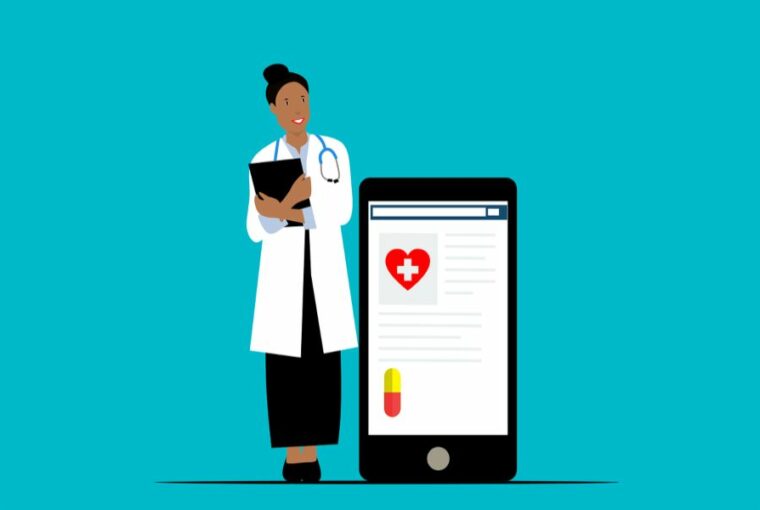With growing awareness around mental health, many realize they’ve battled conditions they previously thought normal. This revelation has created opportunities for mobile therapy apps that provide constant mental health support.
The appeal of having therapeutic tools accessible 24/7 on a smartphone is obvious.
However, as these apps are increasingly used to supplement professional treatment and enable self-management, understanding their real-world effectiveness is critical.
With mental health apps being embraced as always-available support systems, determining if they genuinely improve user outcomes is an important question.
What Are Mental Health Apps?
Mental health apps are programs made for smartphones and tablets. They are designed to help people with mental health and feel better emotionally. Many mental health apps can now help with anxiety, depression, PTSD, OCD, eating disorders, addiction, stress, and improve overall mental health using technology and digital media.
These apps have tools like mood trackers, meditation exercises, CBT techniques, peer support, coaching, and other features to help manage mental health. Some mental health apps are free to support communities. Others are complete treatment programs you pay for.
Stats For Mental Health Technology
- 60% of mental health app users report reduced symptoms through convenient daily mood-tracking tools. (Source here)
- The mental health app market will hit $3.3B by 2027, driven by rising demand and startup investment. (Source here)
These statistics show that mental health apps are an increasingly utilized and effective tool for managing mental health conditions.
How Do Mobile Apps Improve Mental Health?
Let’s review how reputable apps can enhance mental healthcare and self-care through increased accessibility, self-monitoring, education, and more.
However, limitations around privacy, human connection, and accessibility exist. When used proactively with professional treatment, apps provide powerful supplemental support, but human relationships remain invaluable.
Good quality mental health apps used proactively can improve mental healthcare and self-care. Benefits include:
Increased Accessibility
Apps make mental health help more accessible. Barriers like high in-person therapy costs, trouble getting to appointments, lack of counselors, and stigma are reduced since service is available 24/7 on your phone. The convenience and privacy of apps are significant benefits.
Self-Monitoring and Awareness
Apps often have mood, thought journals, habit trackers, and medication logs. Using these consistently can increase self-awareness of how daily behaviors, routines, and attitudes affect mental health. This awareness alone can be therapeutic. Data shared with providers also keeps them informed between visits.
Education and Supportive Tools
Apps provide easy access to psychoeducation, like guides on reframing negative thoughts and anxiety breathing exercises. Having supportive tools readily available builds confidence in managing mental health problems.
Apart from these benefits, some apps offer peer support through moderated forums and messaging where users share experiences and advice. This provides connection and normalization for those struggling with similar issues.
Also, apps can send reminders to take medications, attend therapy, practice self-care like journaling, and more. Accountability can help motivation.
Challenges Of Using A Mental Health Mobile App
However, mental health apps also have some limits to think about:
Staying Engaged
How well mental health apps work depends a lot on the regular use of app features. But many find it hard to form new habits like journaling or tracking moods regularly in an app. Some find apps feel impersonal compared to human therapy. Staying motivated is vital.
Privacy and Security Risks
Entering deeply personal mental health info on an app naturally raises privacy concerns. Mishandling data could be harmful. However, reputable apps invest heavily in protecting user data and privacy. Reviewing security practices is essential.
Accessibility Barriers
While apps increase access, barriers remain. Those without smartphones or the Internet can’t use them. Certain groups, like the elderly and disabled, can have trouble using apps. Inclusive design can help make apps more accessible.
How to use mental health apps safely
Mental health apps can provide significant benefits when used strategically. Here are some tips for using these apps to their full potential:
- Talk to your doctor before relying solely on apps to treat severe mental illness.
- Research apps carefully to choose credible, evidence-based options.
- Take time to learn all the app’s features and how to use them fully.
- Closely review privacy policies before entering personal info.
- Set reminders to stay engaged with helpful app features.
- Use apps as a supplement to professional mental healthcare and self-care.
- See mental health apps as complementing, not replacing, traditional therapy.
Additionally, evaluate usability and tailor tools to your individual needs and goals. Start slowly with new apps to build sustainable habits. Be patient with yourself throughout the process.
Conclusion
Reputable mental health apps provide new ways to increase access, education, awareness, skills, and peer support via convenient smartphone tools. But privacy, accessibility barriers, and lack of human connection remain limits. When used alongside professional treatment, apps can aid mental health management, but human connection stays invaluable. Balancing app use with a holistic approach optimizes wellbeing.




